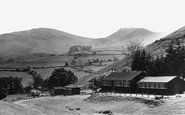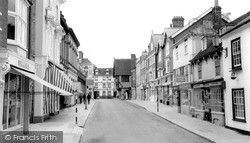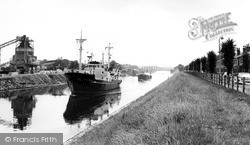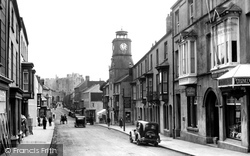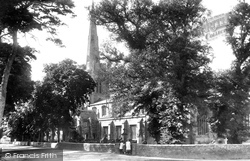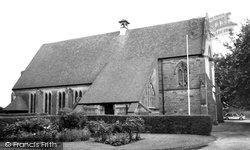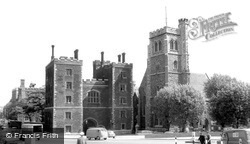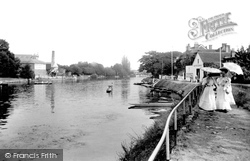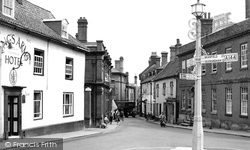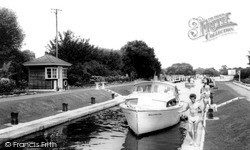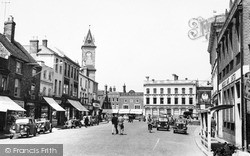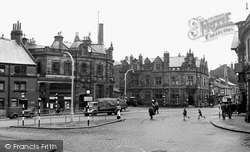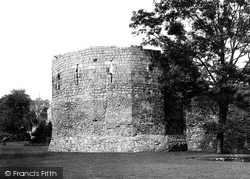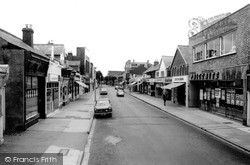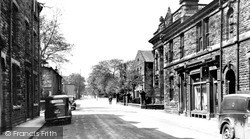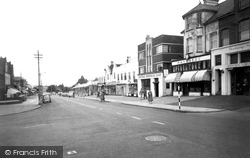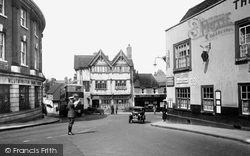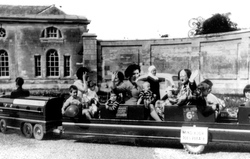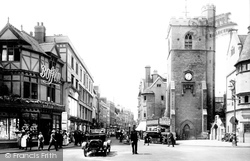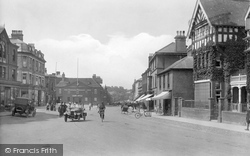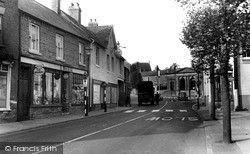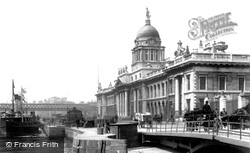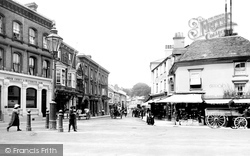Places
3 places found.
Those places high-lighted have photos. All locations may have maps, books and memories.
Photos
68 photos found. Showing results 781 to 68.
Maps
12 maps found.
Books
15 books found. Showing results 937 to 15.
Memories
7,562 memories found. Showing results 391 to 400.
Roan Boy Finally Gets To Braithwaite
All through the lower forms at the Roan School in Blackheath, London SE3, I was aware of the existence of Braithwaite Camp. It had been started in 1930 by a former headmaster of the school, Mr Arthur Hope, ...Read more
A memory of Braithwaite by
Growing Up In Gildersome
I was born in 1952 and lived in Gildersome until I was 19 years old. My name until then was Lorraine Thompson. I have many happy memories of living in the village. Until I was 4 years old I lived in a terrace called ...Read more
A memory of Gildersome in 1952 by
Oak Way, Acton Vale
My memories of Acton Vale estate are endless, you would play out all day and the days were long. I can remember taking back the empty lemonade bottles and then buying a jublie. Going swimming at Acton swimming baths then on the ...Read more
A memory of Acton by
Growing Up In Cranford.
The picture of the Church is in fact the Old Cranford School but it displayed the church services that were being held. The Holy Anagles Church was a 'nissen type ' building at the back of the Old School. I used to attend ...Read more
A memory of Cranford in 1941 by
Memories Of Covenham As A Child
I was born in Covenham in Zeplin Row in 1950. I remember going to bed with candles as that was the only form of lighting we had. If it was cold in the winter I can remember my mum wraping up the warm oven ...Read more
A memory of Covenham St Mary in 1950 by
Walking To School
I walked to school up the track and back through the wood to catch the 234 back to Selsdon, I lived in Abbey Road.
A memory of Riddlesdown in 1960 by
Looking For Information
I am looking for information about my great, great, great grandfather Stevenson Muirhead. I know he was born in Ireland in 1822 but died in Glenluce 1874. I know my great, great grandfather, also Stevenson Muirhead, was ...Read more
A memory of Glenluce in 1870 by
Can Anyone Remember Penycraig In 1940 ?
Searching for a Nantymoel soldier of the 8th Btn Sherwood Foresters who fought the Germans in Norway in April 1940 as part of the ill-fated Norwegian campaign of the "Sickleforce" /148th Infantry Brigade ...Read more
A memory of Penygraig by
Hounslow 1970's
I was born in West Mid Hosp and we lived in Worton Way which was technically Isleworth but very close to Hounslow High Street. Our surname was Pritchett. I went to Spring Grove Infant School in Star Road from 1962-1969 and then ...Read more
A memory of Hounslow by
Captions
2,501 captions found. Showing results 937 to 960.
On the right is a tobacconist and sweet shop with 19th-century windows and a Players cigarette vending machine outside. They sell ice-cream too.
A vessel passes close to Walton Locks and Warrington Wharf before negotiating the Chester Road Swing Bridge.
Looking towards the Castle at the end of the street, note the agricultural implements on sale on the left, the Lion Hotel further down the street, and on the right-hand side the arched
Two small girls wearing pinafores stand outside the church gate. The parish church of St Leonard has one of the finest towers in the county; the spire is 162 feet high.
The Church of St Matthias and St George was built in 1884 and enlarged in 1911, with the works carried out by Huxleys, a local building company.
On the south bank of the Thames, opposite the Palace of Westminster is this handsome building, for centuries the official residence of the Archbishops of Canterbury.The entrance is through a Gothic
As we pass beneath the bridge, still on the Egham bank, the 18th-century Swan Hotel on the right now also occupies the boathouse and garage in front of it, behind the ladies with their parasols.
The King's Arms, then run by R G Wood, has closed, but the arms remain on the present carpet shop. Beyond is the brick Lloyds Bank of 1896.
On the south bank of the Thames, opposite the Palace of Westminster is this handsome building, for centuries the official residence of the Archbishops of Canterbury.The entrance is through a Gothic
West of Sunbury and on the former Middlesex bank of the Thames is Chertsey Lock, near Chertsey Bridge, an austere seven-arch stone bridge of the 1780s by James Paine.
This photograph shows the distinctive sign above the upper floors of Beynon Ltd, which can still be seen, even though the business has long since gone.
The Circus, in the town centre, is where five roads meet. It has the usual mixture of banks and public houses on its corners.
The lower part of this strange structure is Roman; it was the west corner of the Roman fort. The upper part is 14th-century. Inside, there is a small ruined tower.
We are looking in the opposite direction from E167015, page 25, along Market Street.
The lower part of this strange structure is Roman; it was the west corner of the Roman fort. The upper part is 14th-century.
Here we see the Yorkshire Penny Bank (left) in the 1893 building which was originally the post office.
The Broadway also has a branch of the National Provincial Bank (third from the right) next to the post office, leading on to a greengrocer`s, an optician`s and a ladies` hairdresser amongst others.
An RAC patrolman guides an early Austin saloon around the junction of Church Street and the High Street, as a 408C double-decker bus emerges from the top of Bridge Street.
The miniature railway at Cofton Wood was nearly as popular as the tea room, though one cannot help wondering if the adults in this picture are not just the teeniest bit embarrassed.
Things fall off a bit when the High reaches Carfax, at the corner of St Aldate's Street and Cornmarket Street.
On the left is Gilbert and Sons, saddler and harness maker. Ahead, with a classical Georgian front, is the Rutland Arms of 1815. The mock timber-framed Chestnuts now has a shop front at ground level.
Here the photographer looks north along the High Street, towards its junction with Bridge Street to the right, and Desborough Road curving left.
One of Dublin's most famous buildings is the Custom House. It was designed by Gandon and built between 1781-1791.
Looking back into Bridge Street with Burden's Corner now well established, the London County & Westminster Bank opposite retained its authentic late Victorian frontage.
Places (3)
Photos (68)
Memories (7562)
Books (15)
Maps (12)

